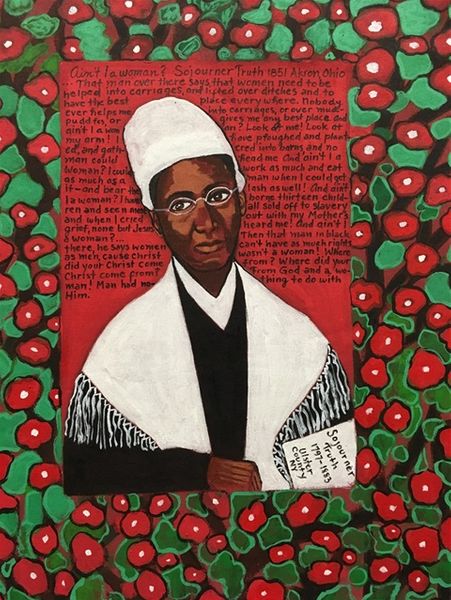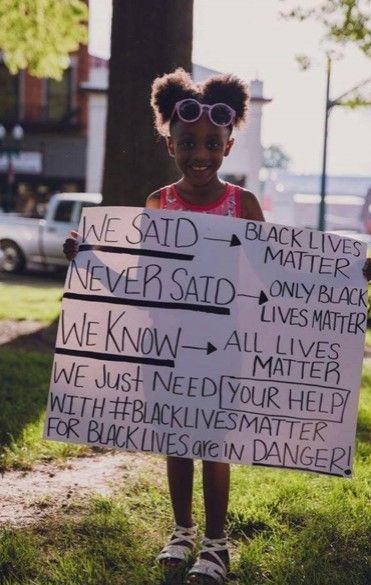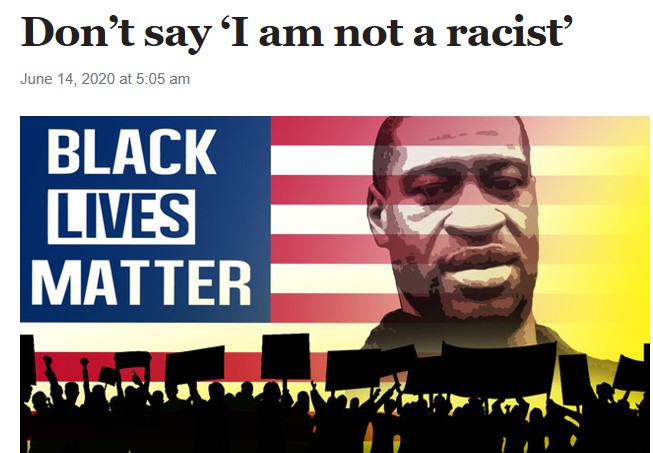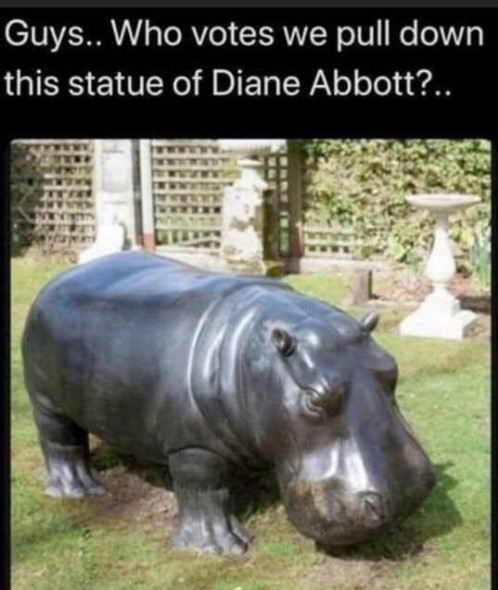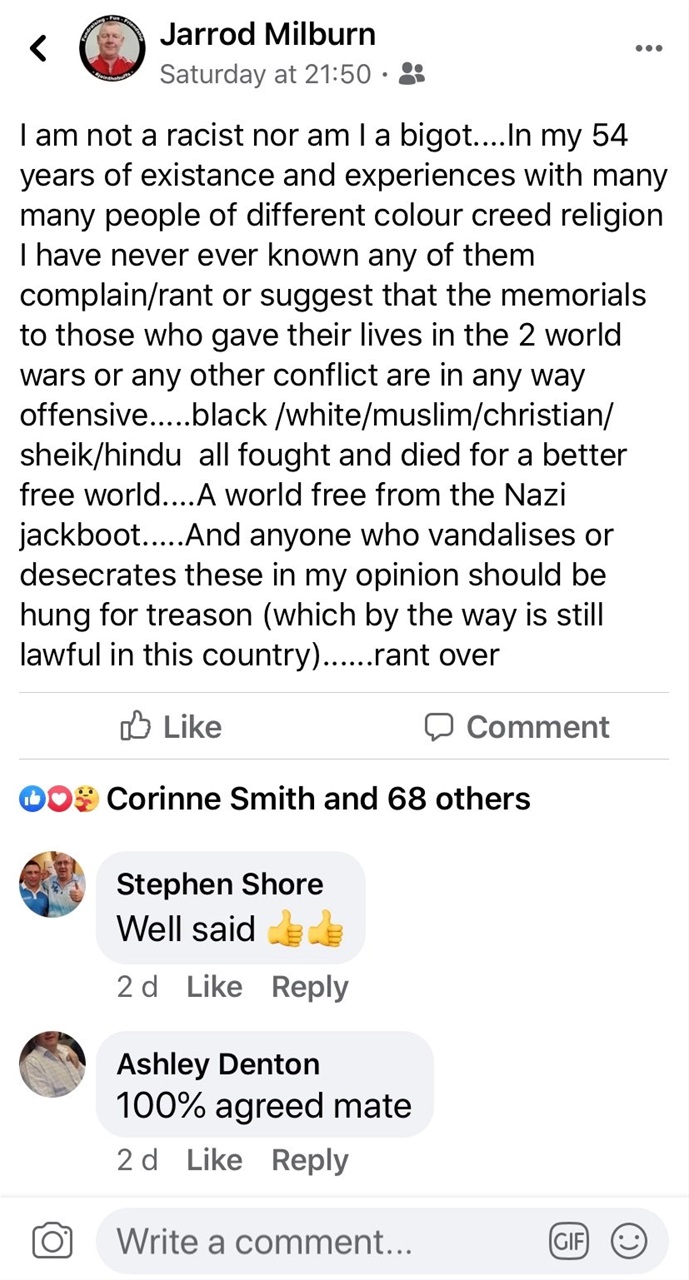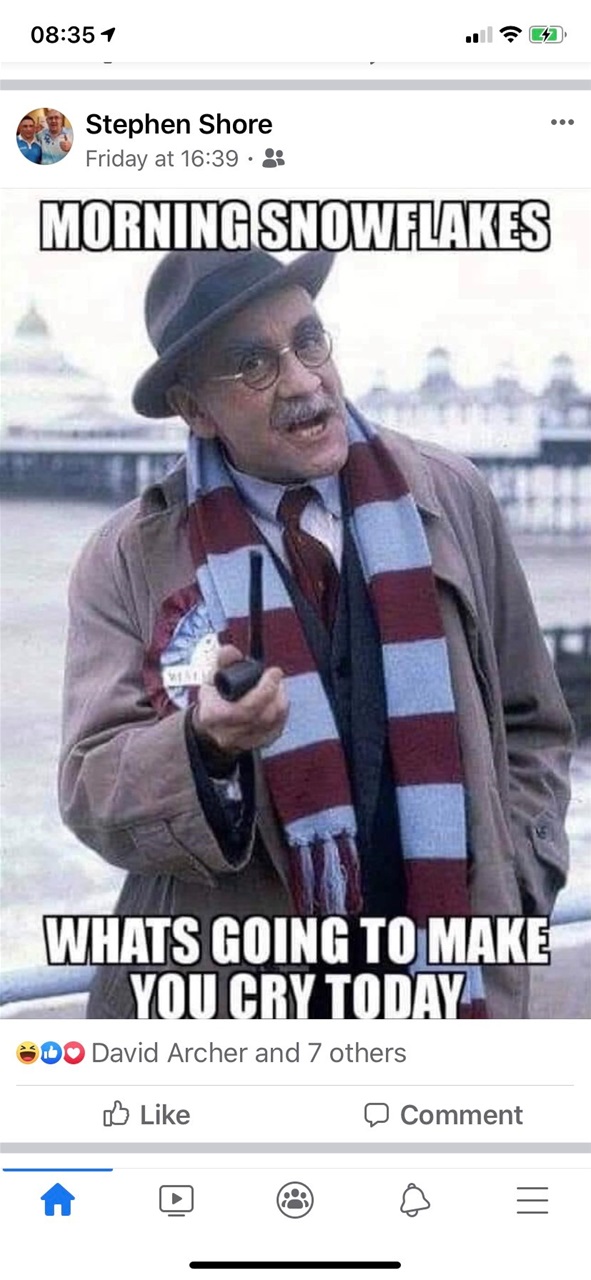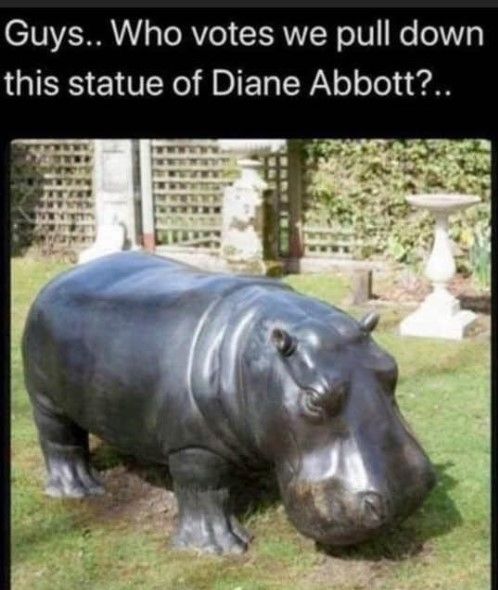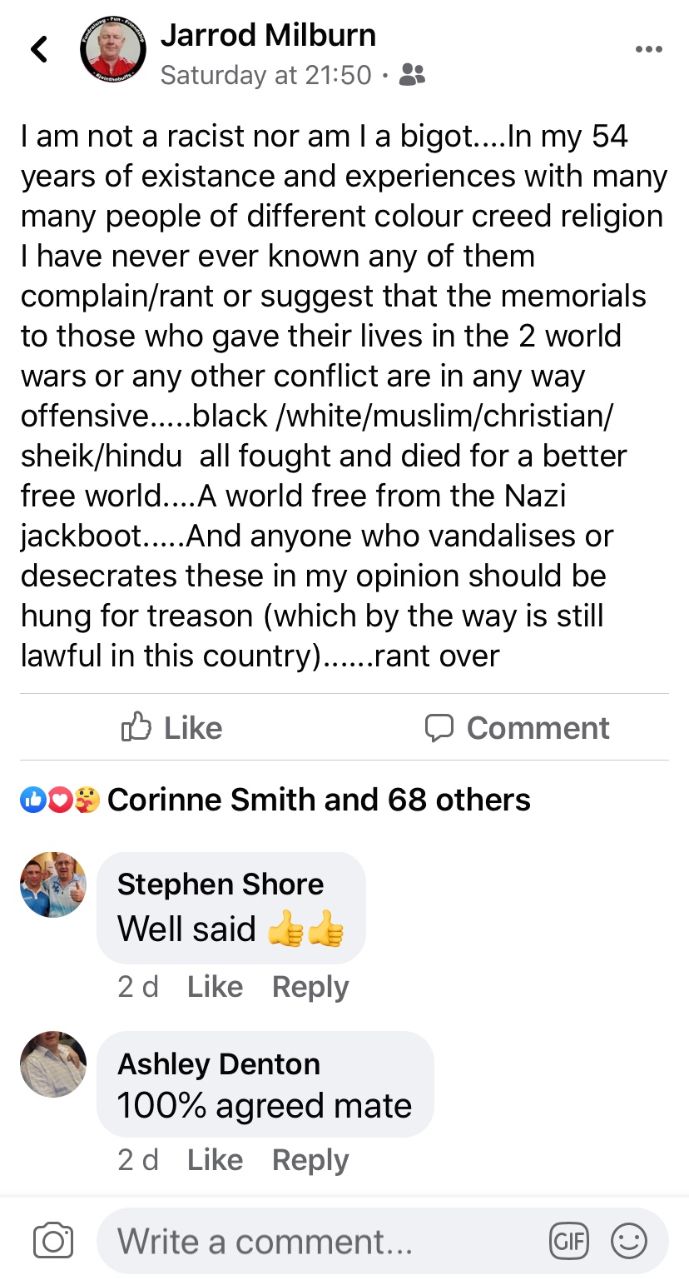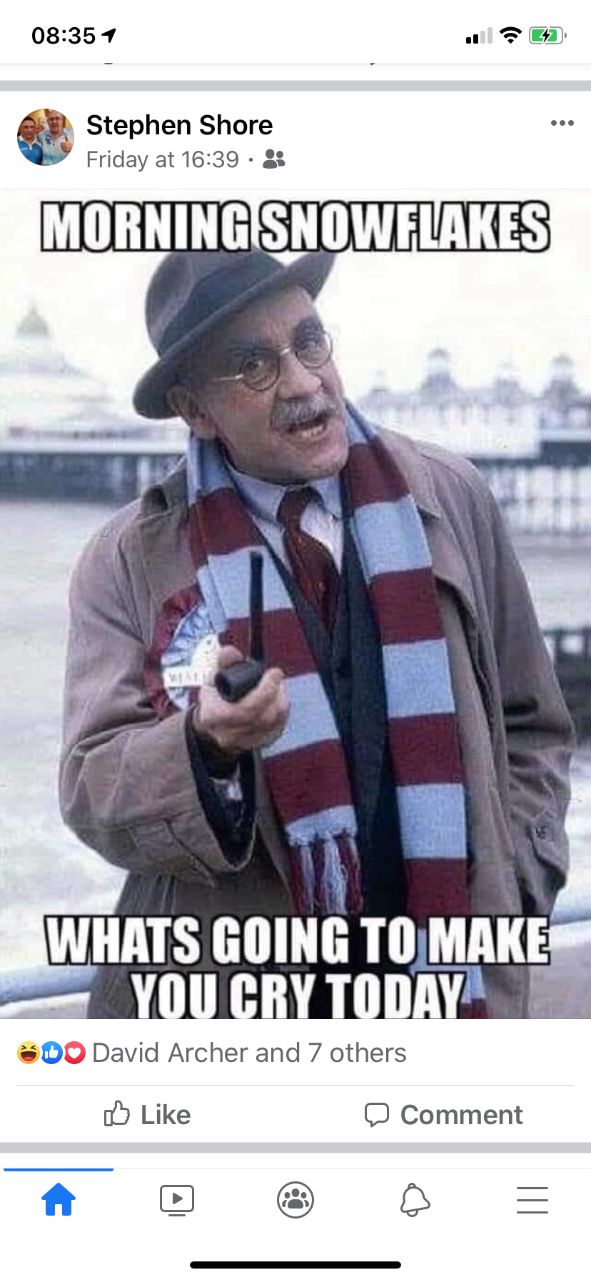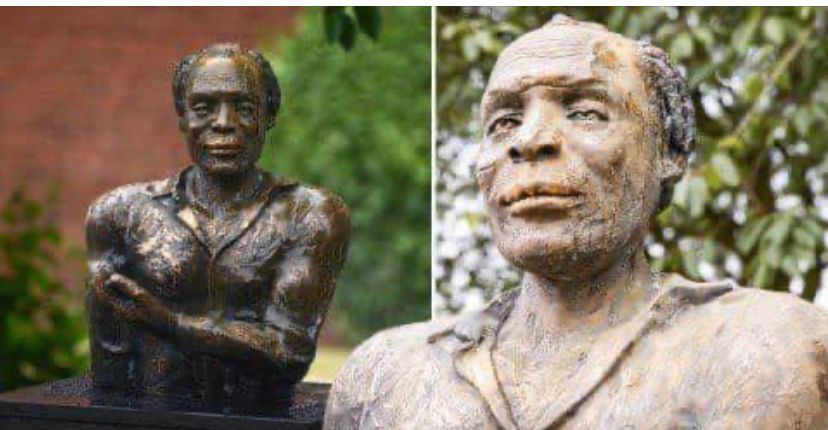Letter to TES Editor vi published edition
In 2007, as an ambitious new school leader in London I attended my first, and sadly last, TES awards ceremony. As a guest of a friend who had inherited a TES award winning school... read on
Racism is a Distraction
The function, the very serious function of racism is distraction. It keeps you from doing your work. It keeps you explaining, over and over again, your reason for being. Somebody says you have no language and you spend twenty years proving that you do. Somebody says your head isn’t shaped properly so you have scientists working on the fact that it is. Somebody says you have no art, so you dredge that up. Somebody says you have no kingdoms, so you dredge that up. None of this is necessary. There will always be one more thing. Toni Morrison
We all Deserve Equal Access to Joy and Love
I am not a racist, but... The subtle behaviour and thoughts I have born witness I recognise are mainly designed to incite race wars or negative race discourse, as opposed to engage in purposeful conversations leading to change. The 4 immediate posts below, all posted over the last two weeks; since the BLM protests on the 7.6.20, are designed to upset, although those that posted them may not have intended to. We have to do more than throw our hands up in the air!
Ultimately I do not listen to these people. It's easy to ignore. You want to inspire everyone on to the side where the flourishing of humanity can take place, but you can't.
#BLM - The pain of experiencing racism doesn’t go away, but the pain must be redirected into positive action, not further anger or regret, as this will fuel further pain. I intend to work alongside with those where the door is ajar and leave those others behind their own doors of shame, but when they are ready to actively listen and change, I too am ready to actively listen and change for the flourishing of humanity.
We Never Said…
Only black lives matter
We agreed with looting
All police are racist
Police deserve to be a target of aggression and their lives threatened
That everybody is the same and therefore everybody should be expected to respond in the same respectful way
We want to attack white people
We hate white people
All white people are racist
What we said was
We can't breathe unless you listen to us, read about us, find out about us by asking us and respect us as equals #Black Lives Matter.
Given that racism is a power construct for the benefit of white people, what will those in power, whether they are senior leaders in schools or CEO of Waitrose or Health Clubs or Society of Merchant Venturers or the Mayor Of Bristol or London etc, be putting at the top of their meeting agendas this week? What will they want to protect, what will they want to change to prevent further racial inequality? Or do Black Lives Not Matter?
We have to do more than throw our hands up in the air! For those of you who don't know Dianne Abbott is the longest standing black MP (Labour) in UK's history. Posting a photo of a statue of an African rotund mammal and likening to someone of African heritage (reference to the Colston (18th century slave owner and trader) statue being toppled is tantamount to a racist act. If they had posted something else relating to Dianne Abbot, it could have been construed as potentially funny, but this reference is surely offensive to most people of African heritage.
To compare the BLM largely peaceful demonstrations with the Taliban and their atrocities is inflating and contributing towards hate and fear of an ethnic group. We have to do more than throw our hands up in the air!
Making references to people who should be lynched in this context, which is relating to the #BLM movement, is racist. Notably when other demonstrators commit the same crime only laughter exists. I have never seen this person make reference to any group of people previously being lynched. We have to do more than throw our hands up in the air!
To most people Alf Garnett is a foul-mouthed racist. This image suggests that if I call him out for being a racist and the people that continue to support his image and that what he stands for, then I am a snowflake - weak and cowardly. We have to do more than throw our hands up in the air!
Work with those where the door is ajar and leave those others behind their own doors of shame
'Us losing a long fought out physical battle is what made me realise that I can't fight every battle.
If I was to fight every battle, then I would spend the WHOLE time fighting and not use my energy on the bigger prize. I paused, we paused and now everyone is following me, everyone is listening to me. EVERYONE!'
Moving on...
16. Jun, 2020
By Leonard Pitts Jr.
Syndicated columnist for the Seattle Times - https://www.seattletimes.com/opinion/dont-say-i-am-not-a-racist/
A few days ago, Greg Glassman, the founder and CEO of CrossFit, set off an uproar by belittling the death of George Floyd at the hands of Minneapolis police. In a Zoom call with gym owners, he bristled at the idea of memorializing a man whose killing outraged the nation and the world. “We’re not mourning for George Floyd,” he said. “I don’t think me or any of my staff are. Can you tell me why I should mourn for him? Other than, it’s the ‘white’ thing to do?”
Then he took his scorn public with a flippant retort to a tweet calling racism and discrimination “critical public health issues.” Replied Glassman, “It’s FLOYD-19.” The social media backlash was furious, and Glassman issued a statement, saying he was “deeply saddened” by the pain he caused. “It was a mistake,” he insisted, “not racist but a mistake.” By Tuesday, according to The New York Times, nearly 1,200 gyms had decided to disaffiliate from CrossFit, and its founder was stepping down.
That said, we aren’t here today to bury Greg Glassman. He’s done an effective job of that on his own.
No, this is for the next Greg Glassman, the next white person who finds himself excoriated for saying or doing some racially offensive thing. It is to beg that unlucky individual to not compound the transgression by retreating as Glassman did to the cliché of clichés, the one that makes folks sigh and roll their eyes, that signals like a neon flasher you are not to be taken seriously. Don’t say what Michael Richards said after he threatened to lynch a black heckler, what Amy Cooper said after she called 911 on a Black man bird-watching in Central Park, what Roseanne Barr said after likening a Black woman to an ape, what white folks always say when caught with their hands in this particular cookie jar.
For the love of Heaven, please don’t say, “I am not a racist.”
ASAP Rocky - Let’s Talk About the Black People Killing the Black People
Rakim Mayers, better known by his stage name ASAP RAPPER, attempts to explain that while blacks fight for equality, they fight amongst themselves; as all groups do, to fight for recognition. He strongly suggests that this infighting has to be addressed simultaneously as the disproportionate amount of injustices served by the police departments against blacks.
Undoubtedly black on black violence has to be investigated. Where are the millions of dollars put aside to investigate, enlighten, educate, inspire and progress? We have to treat black on black violence like we have the current pandemic and invest and strategise.
#Socialjustice. We must not forget that blacks often live in poorer neighbourhoods, have access to poorer facilities and lesser opportunities. This does not excuse black on black killing or violence, but it explains some of it.
Bristol Uprising II - Explained by Glocal at Ujima Radio 12.6.2020
Bristol is putting a marker down. Wise dem. Revolutionary target?
Sandy Speaks - Default to Truth
Malcolm Gladwell expertly uses the Sandra Bland story in his book to explain systemic racism - read it and together we can explore how to better understand how to start healing and celebrating black lives, so they matter more than they do now to some.
It's a Conversation - Jendayi Serwah - Bin The BAME Word - We Are The 3%
Alfred Fagon in St Pauls, Bristol, was erected in 1987 on the first anniversary of his death.
Mr Fagon was the first black person to have a statue erected in their honour in the city.
It was reported on Thursday to police, who said it was being investigated as criminal damage and inquiries were continuing.
It comes after Black Lives Matter anti-racism protesters tore down a statue of slave trader Edward Colston in Bristol on Sunday.
Since that statue was toppled several other statues around the UK of people linked to the slave trade have been removed, or it has been announced that they may be taken down.
'Laughed at it'
Mr Fagon's sister-in-law, Judy Malone-Fagon, said if it was vandalism, it was "ignorant and idiotic".
"It's the only statue to a black person in Bristol, who would do something like that?" she said.
Who was Alfred Fagon?
He was born in Jamaica in 1937, the third of nine brothers and two sisters.
At the age of 18 he came to England to work on the railways before joining the army before moving to Bristol to work as a welder in the 1960s.
One of his first plays, No Soldiers in St Pauls, explored the social tension between the police and the black community in 1970s Bristol.
His final role was in the BBC's Fighting Back, set in St Pauls.
He died suddenly from a heart attack on 28 August 1986 outside his flat in Camberwell, London.
At the time police claimed they were unable to identify him and he was given a pauper's funeral.
The annual Alfred Fagon Award was named after him and is for playwrights of Caribbean or African descent, resident in the UK.
It WAS Acceptable at the Time - Social Career of Comedy and Artefacts
The changing face of comedy. Blackface is a historical practice that dates back around 200 years. It's seen as racist and many people find it deeply offensive.
It commonly refers to when someone (typically with white skin) paints their face darker to resemble a black person. But it isn't just about painting skin a different colour.
Blackface was a practice in which black people were mocked for the entertainment of white people, and negative stereotypes were promoted across the US and Europe.
In the early 19th Century, white actors called minstrel performers used to paint their faces black and do comedy routines about black people, which were racist.
What is a stereotype?
A stereotype is an oversimplified idea of what someone or something is supposedly like, although it may not be accurate and can often be insulting. Believing a stereotype also means you have an idea of what something or someone is like before you have even come across it or them, removing any sense of identity or individuality from that person or situation.
They would do insulting impressions of black people in very exaggerated ways - for example, mocking their accent.
These depictions were inaccurate, hurtful and deeply offensive, but many white people saw it as an acceptable form of entertainment.
Several politicians and media stars, including Canadian Prime Minister Justin Trudeau and Katy Perry, have been involved in blackface scandals in recent years.
https://www.bbc.co.uk/newsround/47218511
